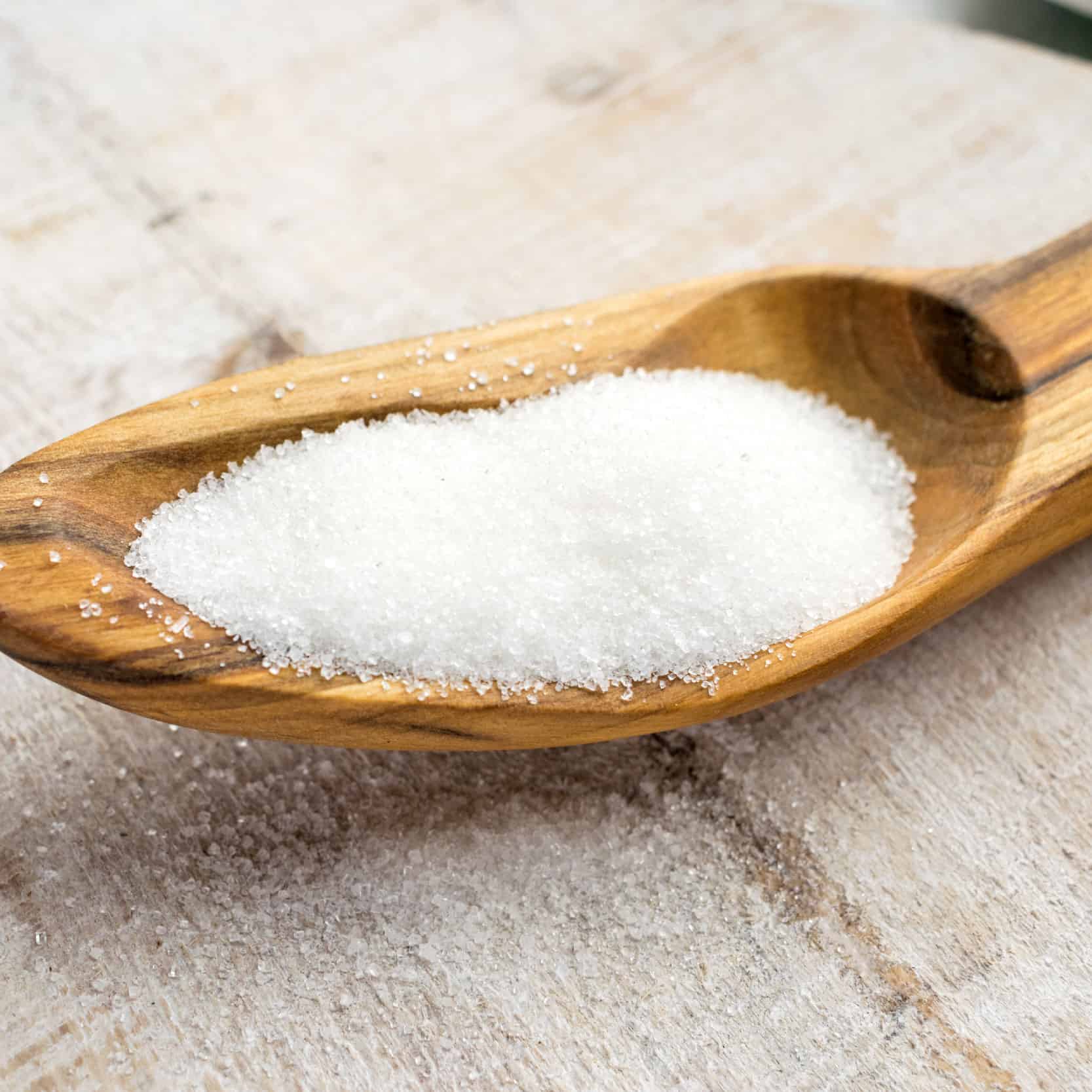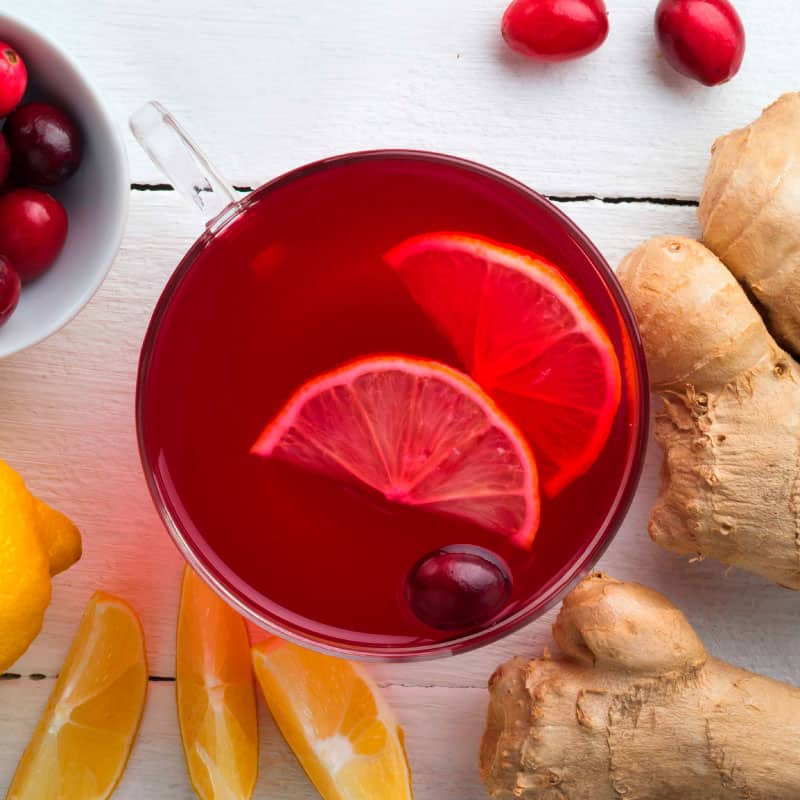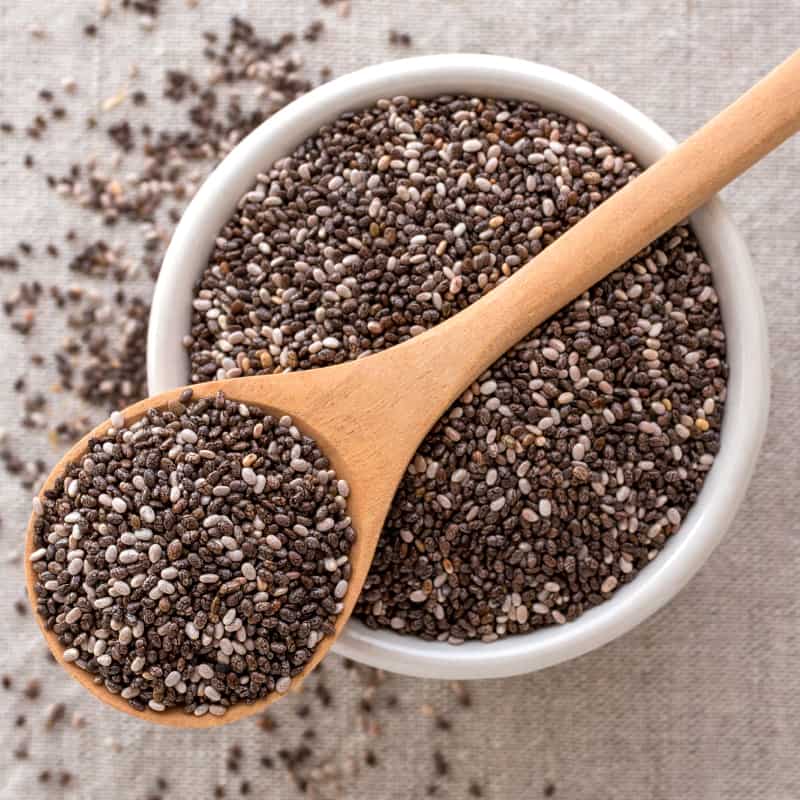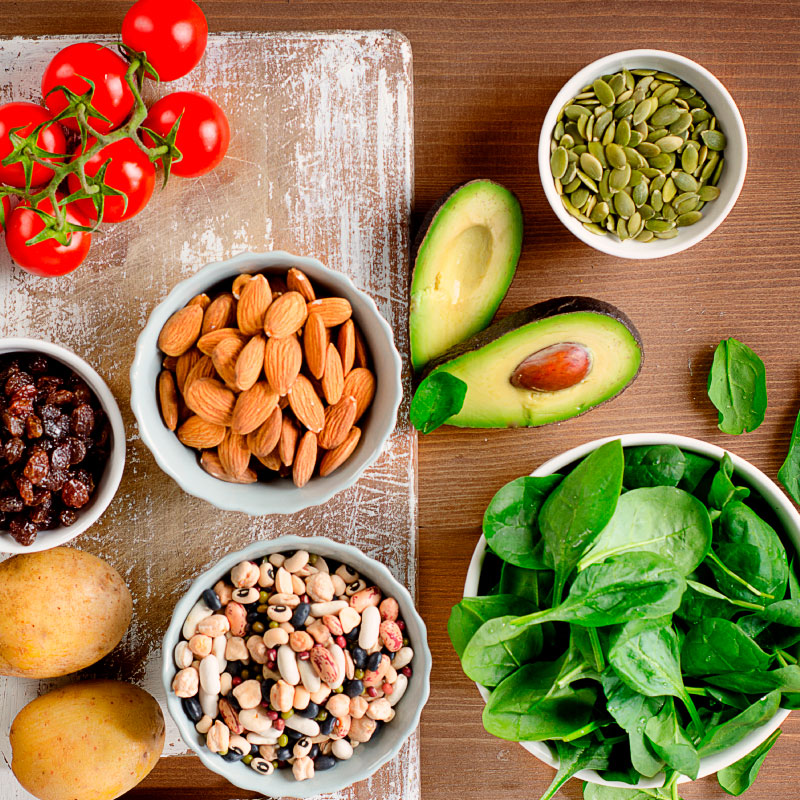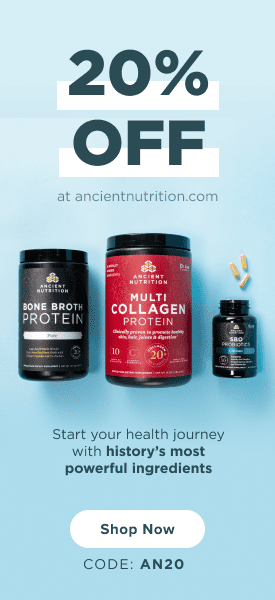This Dr. Axe content is medically reviewed or fact checked to ensure factually accurate information.
With strict editorial sourcing guidelines, we only link to academic research institutions, reputable media sites and, when research is available, medically peer-reviewed studies. Note that the numbers in parentheses (1, 2, etc.) are clickable links to these studies.
The information in our articles is NOT intended to replace a one-on-one relationship with a qualified health care professional and is not intended as medical advice.
This article is based on scientific evidence, written by experts and fact checked by our trained editorial staff. Note that the numbers in parentheses (1, 2, etc.) are clickable links to medically peer-reviewed studies.
Our team includes licensed nutritionists and dietitians, certified health education specialists, as well as certified strength and conditioning specialists, personal trainers and corrective exercise specialists. Our team aims to be not only thorough with its research, but also objective and unbiased.
The information in our articles is NOT intended to replace a one-on-one relationship with a qualified health care professional and is not intended as medical advice.
6 Vegetarian Diet Benefits and Guidelines to Follow
November 16, 2023
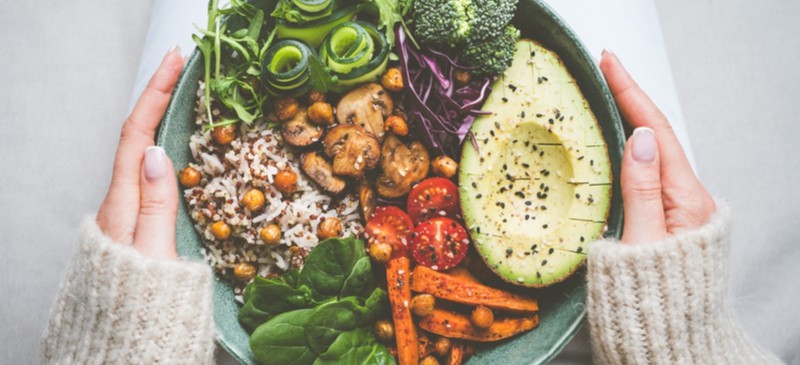
According to research published by Gallup in 2023, people who follow a vegetarian diet is 4 percent among Americans. In the U.S., those who follow the more strict vegan diet — meaning they avoid all animal products — represent just 1 percent of the total adult population.
Several analyses that have compared vegetarian diets to non-vegetarian diets have found that those eating predominately plant-based diets have increased protection against health problems, including cardiovascular diseases, cardiometabolic risk factors, some cancers, type 2 diabetes, obesity and total mortality.
Learn about the different kinds of vegetarian diets, the benefits versus risks, and then guidelines to follow if you want to become a vegetarian full- or half-time.
What Is a Vegetarian Diet?
What can you eat on a vegetarian diet? While there are many versions of vegetarian diets, most consist of eating plant-based foods along with moderate amounts of eggs and dairy (but no meat). The staples of a balanced vegetarian diet include a variety of plants like fresh or cooked veggies, fruit, nuts, seeds, whole grains and legumes.
How does a vegetarian diet work to promote heart health, weight loss and health benefits? And are there any risks involved in cutting out the majority of animal-based foods in your diet?
Because plants are low in calories but high in essential vitamins, minerals and antioxidants, vegetarian diets can be very nutrient-dense. Research published in the Proceedings of the Nutrition Society found that “vegetarian diets are usually rich in carbohydrates, omega-6 fatty acids, dietary fiber, carotenoids, folic acid, vitamin C, vitamin E and magnesium, and relatively low in protein, saturated fat, long-chain omega-3 fatty acids, retinol, vitamin B12 and zinc.”
However, there’s no guarantee that a vegetarian diet will result in health improvements. Ultimately it all depends on the specific foods someone chooses to eat, plus his or her individual reaction to cutting out most, or all, animal products.
Benefits
1. High in Antioxidants and Vitamins
Almost all plant-based foods offer high amounts of antioxidants and/or have some anti-inflammatory properties, which means they help stop the progression of disease by supplying nutrients that fight oxidative stress.
Diets that are high in vegetables, fruit and other plant foods like legumes or ancient grains provide lots of nutrients, including antioxidants and phytonutrients, such as flavonoids, resveratrol, quercetin, beta-carotene and more; essential vitamins, such as vitamin C, E and A; trace minerals, such as manganese or phosphorus; and electrolytes like potassium and magnesium.
A nutrient-dense diet is beneficial for gut health, boosting immunity against illnesses, slowing down the effects of aging, protecting against cancer and heart disease, and preventing deficiencies that can lead to many negative reactions.
2. Can Help Support Heart Health
Plant-based foods provide help to lower inflammation, a root cause of heart disease, and also provide dietary fiber. Research has shown that there’s often a link between eating a high-fiber diet and having increased protection against high cholesterol, heart disease and diabetes.
One study published in the Journal of American College of Cardiology found that “higher intake of a plant-based diet index rich in healthier plant foods is associated with substantially lower coronary heart disease risk.” Another study published in 2015 in the Permanente Journal found evidence that vegetarian diets can be beneficial for significantly lowering body mass index, high obesity rates, high blood pressure, high triglyceride and cholesterol levels, and diabetes risk.
3. May Help with Weight Loss
People who eat a high amount of vegetables and fruit daily tend to have the best protection against weight gain as they age. Because plant-based foods like fresh veggies and fruit are very low in calories yet are high in terms of volume and therefore take up lots of room in your stomach, they are filling and keep you from over-eating.
Plant-based (or “mostly plant-based”) diets are tied to a lowered risk for obesity, lower BMI status and reduced complications related to obesity, such as heart problems or metabolic syndrome.
4. Provides More Digestive Enzymes
If you choose to include a good amount raw foods in your diet, you’ll benefit from obtaining higher amounts of digestive enzymes that serve many purposes. When cooked over a certain temperature, enzymes found in raw food often become destabilized. Enzymes are important because they are needed to break down the food into smaller nutritional units that the body can handle.
Some nutrients, such as vitamins, minerals and amino acids, are destroyed or altered when food is cooked at high temperatures or for long periods. Eating too much cooked food creates waste in the body that cannot even be used, which in turn may have a clogging effect on the body. While the pancreas and other cells make enzymes in the body, raw foods provide more enzymes for the body to use. In a diet of purely cooked foods, the pancreas and other organs may become overworked due to how there is no external enzyme source.
“Raw foodists” believe that because raw plant foods contain biophotons, or “sun stored energy,” they contribute to important processes in the body. If your diet provides adequate calories overall and is balanced, then the more biophotons you consume the more you should experience having higher levels of energy and improved moods.
5. Eliminates Additives and Byproducts Found in Cooked Meat
When meat is cooked at high temperatures, certain chemical compounds called heterocyclic amines can be created that may have carcinogenic effects. Research published in 2021 has pointed to a link between consumption of highly processed meat products and higher risk for cancer. The higher the cooking temperature of meat, the greater chance of these byproducts being created.
Additionally, vegetarian diets eliminate processed meats, which are also considered carcinogenic. These include foods like packaged cold cuts, hot dogs, salami and cured meats. On the other hand, plant-based proteins offer amino acids (the specific types and amount differs from food to food) in addition to fiber and antioxidants, but without the carcinogenic effects.
6. Is Sustainable and Helpful for the Environment
Many people choose to reduce the amount of meat, fish and other animal foods in their diets in order to lower their carbon footprints. Plant foods are “lower on the food chain” and require less natural resources, such as water and others, to produce. So a vegetarian diet is considered more of a sustainable diet than most.
According to a report in the American Journal of Clinical Nutrition, manufacturing animal foods requires a higher proportion of water, land, fossil fuels and energy than most plant foods do.
Types of Vegetarian Diets
There are several variations and definitions to distinguish between when talking about vegetarianism. Here are the most common types of vegetarian diets:
Plant-Based Diet
Plant-based diets are modern takes on many types of healthy traditional diets that relied on widely-available plant foods — including vegetables, fruits, starches like potatoes or corn, beans/legumes, nuts, seeds and healthy fats like whole coconuts or olives.
There isn’t necessarily one “plant-based diet” in existence today, but rather dozens of different variations that stem from cultures found all around the world.
Vegan Diet
Those following a vegan diet abstain from ALL animal products and consume only plant-based foods (no meat, fish, eggs, or dairy).
Some vegans choose to take things a step further and stick with to a mostly “raw food diet.” Going on a purely raw diet may sound a bit extreme, but if you look at the food most people tend to eat all the time, you’ll realize that adding raw food to your diet may be beneficial to your body and overall health. Note, however, that folks dealing with digestive issues, such as leaky gut syndrome, are best keeping raw foods to a minimum.
Ovo-lacto Vegetarian
A “strictly” vegetarian diet consists of plant-based foods, but may also include eggs and dairy. Typically no fish or meat of any kind will be included. When eggs and dairy products are included, it’s called an ovo-lacto vegetarian diet (hence the name ovo, as in “ovum,” and lacto, as in “lactation”).
Macrobiotic Diet
The macrobiotic diet is a plant-based diet rooted in yin-yang theory that stems from Asia. According to macrobiotic theory, balancing yin and yang is accomplished through eating a mostly vegetarian, low-fat diet with a balance of different macronutrients (proteins, carbs and fats), foods that have different energetic qualities, and a wide range of vitamins and minerals from plants. This approach to eating is believed to best support agriculture, local farming, digestion and even mental well-being.
Pescatarian Diet
Pescatarian diets include fish and seafood along with a variety of plant foods (vegetables, fruits, nuts, grains, beans, etc.). Most also include eggs and dairy but no poultry, beef or red meat, although it depends on the individual.
Pegan Diet
The pegan diet, or vegan Paleo diet, is a diet that combines principles of Paleo and plant-based eating. Also sometimes called the Mark Hyman pegan diet or Dr. Hyman pegan diet, the plan was created and popularized by the famous author and physician in 2015.
Green Mediterranean Diet
The green Mediterranean diet, also called “green Med,” is a mostly vegan diet that emphasizes whole, unprocessed plant foods. The diet includes very little or no meat and minimal animal products.
According to an article published by the journal BMJ, green Med may be even better for health than the traditional Med diet that includes more animal-derived foods, such as poultry, cheese and meat.
Flexitarian Diet
Flexitarians are just that – flexible. Instead of committing to a full-time, plant-based diet, flexitarians focus on eating mainly whole foods like fruits, vegetables, grains and dairy.
The amount of meat that flexitarians consume varies: Some might spend six days eating meat-free and then enjoy a Sunday roast, while others might eat a small amount of meat a few days a week.
Precautions and Side Effects
Including more vegetables and other plant foods in your diet is definitely a great idea. But there are also some disadvantages to vegetarian and vegan diets that you should be aware of.
Below are the downsides to having a completely plant-based diet or one that includes only little amounts of animal proteins:
1. Potential Lack of Amino Acids
Amino acids are the building blocks of proteins. They help form muscle and are important for cellular health and proper metabolism. Low protein diets might cause a lack in certain amino acids, although it depends on the specific diet.
2. Low Levels of Vitamin B12
You can only get vitamin B12 in substantial amounts by consuming meat, fish, eggs and dairy. Cutting out all of these foods can sometimes be problematic and contribute to vitamin B12 deficiency symptoms like fatigue, weakness and others. For this reason it’s recommended that all vegetarians and vegans who abstain from eating most or all animal foods take vitamin B12 supplements.
3. High Amounts of Phytic Acid
Some grains, beans and legumes, such as raw soybeans, lentils and mung beans, may contain trypsin inhibitors and other “antinutrients” that can make digestion difficult and hinder nutrient absorption. These inhibitors can block key digestive enzymes, and phytic acid found in grains can keep you from absorbing calcium, magnesium, iron and zinc. However, soaking and sprouting your grains and legumes can greatly reduce phytic acid.
4. Overconsumption of Carbohydrates
Like many eating styles, some may overconsume carbohydrates and sugars. Eating too many carbs can cause candida and yeast overgrowth, along with weight gain.
5. Fatigue and Low Energy
Again, fatigue and weakness can be due to the lack of certain vitamins that we normally get from meat and fish. This includes B vitamins, zinc and others. Taking a multivitamin is considered a great way to prevent this possible side effect.
6. Less Ability to Put on Muscle
This may be due to the lack of certain vitamins or protein that we normally get from meat and fish. Consider eating more plant-based protein foods and supplements.
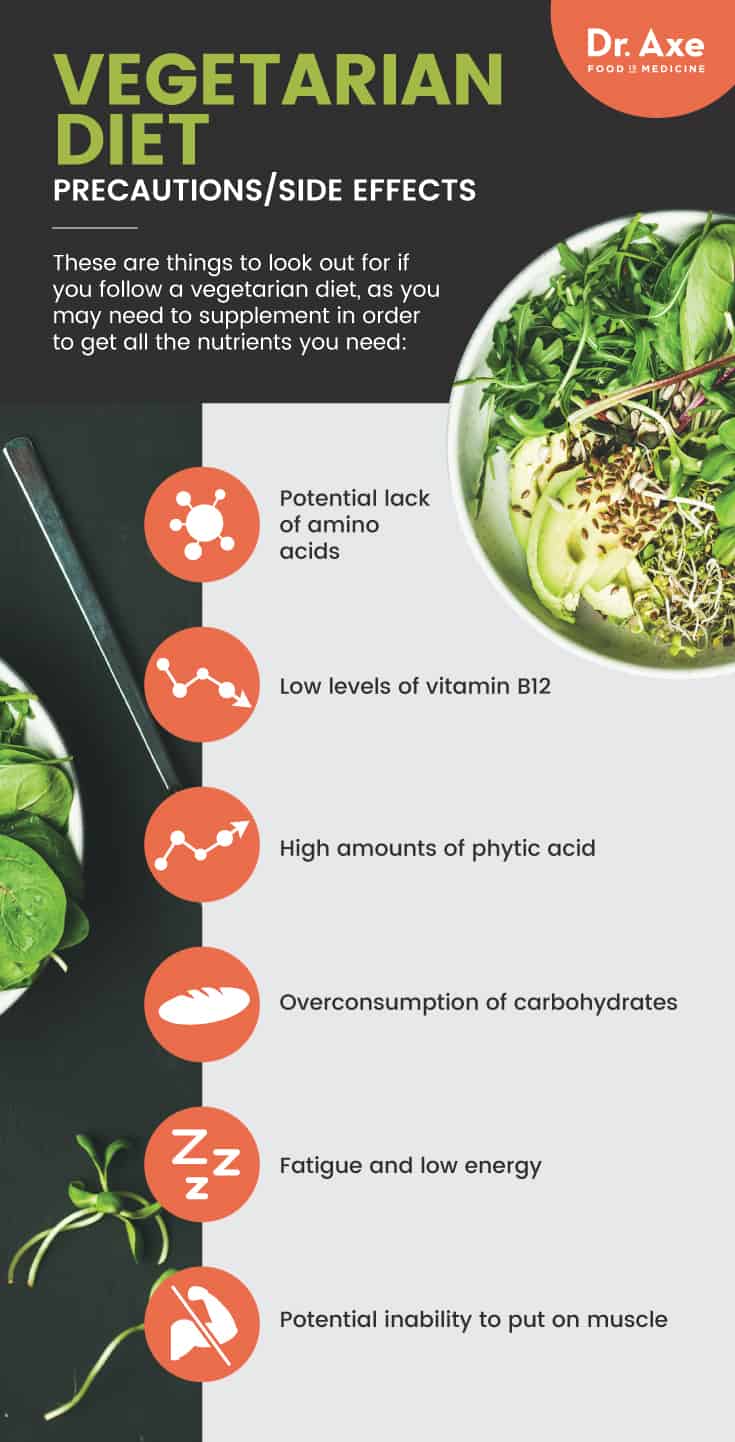
Vegetarian Diet Plan Guidelines
1. Eat a Variety of Vegetables and Fruits
It might be easy for you to eat fruit daily, but what about getting enough vegetables? Most health authorities recommend eating at least three to five servings of veggies per day. Here are some tips for sneaking more veggies and fruit into your meals:
- Swap vegetables for other foods in your meals, especially refined grains.
- Use fruit in place of added sugar to sweeten recipes. For example, apple sauce or mashed bananas make a great sweetener in baked goods.
- Start your meal with a salad or a veggie-based soup.
- Add a handful or two of veggies to things like omelettes, stews, stir-fries, casseroles, etc.
2. Consume More Raw Plant Foods
As mentioned above, many people can benefit from adding more raw foods to their diets, assuming their digestive systems tolerate them well. You don’t have to follow a strict raw vegan food diet to reap the benefits of eating more plant foods. “Raw foods” in the context of a vegetarian/vegan diet consist of those that have not been heated over 46º C or 115º F. Some of the best raw foods to include in your diet often include:
- All kinds of raw fruits and vegetables
- Sprouts
- Nuts and seeds
- Roots and root vegetables (squashes included)
- Fresh herbs
- Raw spices
- Seaweeds
- Sprouted whole grains
- Soaked legumes or beans
- Fresh fruit and vegetable juices
Other foods and ingredients that are minimally processed and healthy additions include:
- Cold-pressed oils
- Raw nut butters
- Raw nut milks
- Unprocessed olives
- Fermented foods like miso and kimchi
- Pure maple syrup
- Dried fruits and vegetables
- Vinegars and food that has been cured by vinegar
- Raw cocoa/dark chocolate
3. Get Enough Plant-Based Protein and Fats
To make sure you’re eating enough protein and calories in general, don’t skimp on plants that offer amino acids and healthy fats. How much protein should you aim to eat each day? While it might be possible to get away with less, it’s best to divide your body weight in half and eat about that many grams of protein per day. Some of the best plant proteins include natto, spirulina, tempeh, nutritional yeast, green peas, lentils, quinoa and amaranth.
To make sure you’re getting enough healthy fats, include at least one of the following in each main meal: nuts and seeds (like almonds, walnuts, hemp, chia or flax), avocado, olive oil, coconut oil or coconut cream/milk, and butter or ghee if you include dairy products. Even if your diet is overall low in fat, try to still get about 20 percent or more of your daily calories from healthy sources of fat.
Final Thoughts
- Vegetarian diets are those that eliminate animal foods, including meat and fish, replacing them with plant-based foods like veggies, fruits, tubers, whole grains, legumes/beans and healthy fats. Some vegetarians choose to still include dairy, eggs or fish in their diets.
- Benefits of a vegetarian diet include obtaining more antioxidants and fiber, better protection against obesity or weight gain, and lowered risk for heart disease, diabetes, autoimmune disorders and metabolic syndrome.
- It may not be necessary to completely exclude all animal proteins from your diet. To prevent issues like vitamin B12 deficiency, iron deficiency anemia and low protein intake, it may be best to still consume some eggs, dairy or fish. A well-balanced vegetarian diet should also include lots of raw and cooked veggies, limited processed foods, low amounts of added sugar, and little refined grain products.





